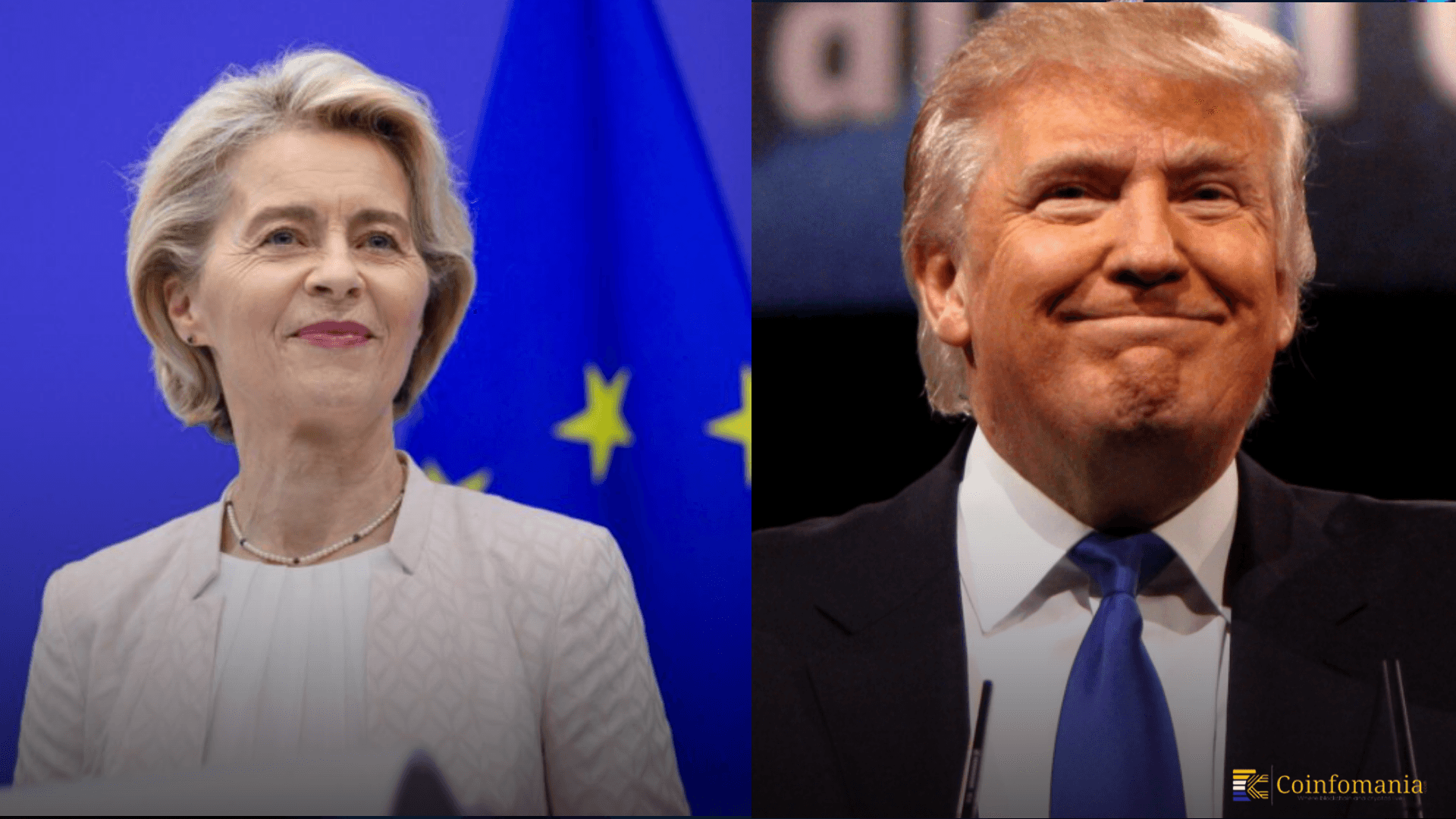Von der Leyen Considers Trump Tariff Pause as Key Step Towards Global Economic Stability
Let's dive into Von Der Leyen’s comments on Trump tariffs and global trade tensions with financial markets affecting the economy in 2025.

On April 9th 2025, Donald Trump announced his position as U.S. President that he would uphold the current tariff levels on diplomatic partners for three months, yet maintain the existing restrictions against China. The global community and financial markets approved the decision made by President Donald Trump. Ursula von der Leyen, the European Commission president, declared this action to be fundamental for economic stability, yet proposed eliminating mutually imposed tariffs toward zero-for-zero trade elimination for absolutely seamless market transactions. The Trump tariff has led to increased market uncertainty and volatility.
Trump Trade Tariff: A Deep Dive into the Economic Implications
The stated announcement created immediate positive effects on worldwide markets. A 6.2% increase in the FTSE 100 index became its most significant move in several months because mining and banking companies demonstrated robust growth. The S&P 500 demonstrated its highest gain since 2008 during this period when it increased by 9.5%. German index DAX and French index CAC 40 joined several other European stock markets in their strong upward movement. The ongoing trade war between the US and China has led to increased market volatility.
The general relief turned into a harsh blow for China due to U.S. tariff increases which led China to implement a 84% import tax on all American products and subject 18 U.S. firms to blacklisting. The continual increase in trade tariffs led economic giants to fear a direct military conflict in the midst of their trading relationship. The trade war has resulted in higher tariffs and reduced trade between countries. A 25% retaliatory tariff on U.S. goods approved by the EU would start affecting imports on April 15. In its pursuit to protect its economic interests, the EU issued various trade restrictions on almonds, motorcycles, and yachts.
Will the Trump Trade Tariff lead to a global economic boom or bust?
Economic difficulties arose in the United Kingdom because of the implemented tariff changes. The economic experts predicted GDP would decrease minimally while central banks likely would lower interest rates to combat any emerging inflation risks. The implemented tariffs caused financial markets to become volatile which negatively impacted business sectors and postponed major financial agreements.The market volatility caused by the Trump tariff and trade war has led to significant fluctuations in stock prices.
The world has reacted differently towards President Trump’s imposition of tariffs. The market volatility has resulted in increased uncertainty and risk for investors. The suspension gets divergent interpretations among analysts because some consider it market pressure relief, while others think it is a stopgap solution without tackling core trade disputes. The current trade standoff between China and the United States has become more difficult after President Trump chose to exclude China from the temporary tariff suspension. Throughout the 90-day waiting period, the global community maintains close observation to investigate trade agreement sustainability negotiations. Global economic operations together with international trade agreements face significant influence from the results of these ongoing talks.
Follow us on Google News
Get the latest crypto insights and updates.
Related Posts

Pi Network Makes Bold Move Into AI Robotics With First-Ever Investment in OpenMind
Triparna Baishnab
Author

Animoca Brands Confirms $1B Nasdaq Move With Reverse Merger
Triparna Baishnab
Author

NHL Shocks Fans With Groundbreaking Deal — Polymarket Becomes Official Prediction Partner
Triparna Baishnab
Author